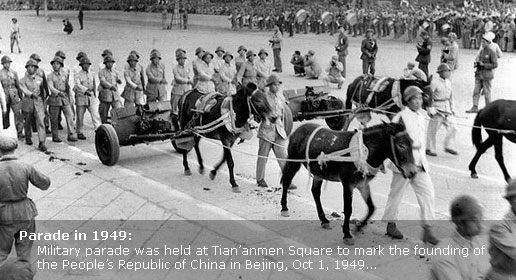60 People, 60 Stories
'Show me the money?'
By Alison M. Friedman (China Daily)
Updated: 2009-09-30 09:27
Artists will persist in creating whether or not they have funding. But the support a country offers its artists often reflects the way that nation views their role in society.

The expectation that China will be the next global superpower extends not only to politics and economics, but also to the cultural realm. How China will fund this cultural realm is a question of ongoing debate as the country moves from the planned to a market economy, and reevaluates the roles artists should play in this nascent market-driven system.
In 1942, Chairman Mao Zedong delivered his Talks at the Yan'an Forum where he outlined the role arts would play as "cogs and wheels" of his revolution. His republic supported them as such, with government-sponsored song and dance troupes, State-run theaters and academies to train generations of revolutionary performers. This blanket support came not without quid pro quos, however. Any creative expression that did not have an explicitly pro-revolutionary message was eventually outlawed, reaching fever pitch during the "cultural revolution" (1966-76) when all performances were banned except for eight model operas, including two ballets, known as the "Yangbanxi."
Since the 1980s, artists have been carving out niches for experimental performance with funding from a combination of sources - often doing so simply out-of-pocket. China's 11th Five Year Plan (2005) states that all cultural State-owned enterprises will have been required to complete their transformation to market-supported private organizations by 2010. (There has since been an extension on that deadline.)
Previously, arts organizations that were not government-run could register only as commercial enterprises, which meant high taxes.
One challenge artists face is the increasing commercialization. Theaters seek big-name performers to sell tickets, and costs to produce performances have skyrocketed. Conversely, a diversity of funding sources hopefully contributes to a more diverse ecology of performance venues, troupes and content.
In such an environment, the role of the artist is hardly monolithic but rather one that nurtures rich, varied discourse for exploration and innovation.
The value of such creativity, especially for an aspiring superpower, should be priceless.
Alison M. Friedman is an arts management fellow at the Kennedy Center for the Performing Arts and runs her own production company, Ping Pong Productions.







